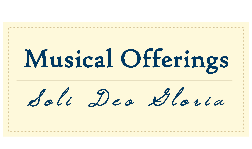Publication Date
10-25-2021
Document Type
Article
Keywords
Monteverdi, Claudio Monteverdi, Orfeo, Opera, Renaissance, Humanism, Aria, Recitative, Monody, Greco-Roman, Philosophy, Ancient Greek
Abstract
Late Renaissance composer Claudio Monteverdi is known by scholars as the father of opera. While Monteverdi did not directly invent the production, we honor him as the first to successfully produce three major operas that have survived to this day. His works set the stage for future opera composers, and he drastically influenced the rise of such a large scale production. He is most known for his opera "Orfeo," which has continued to be adapted to the modern stage, and performed frequently in several opera houses. What led to the creation of such an extravagant production and never before heard musical ideas? The rise of the philosophy of humanism through discovered ancient Greco-Roman scrolls provided the foundation for new thoughts and perspectives on music and human life. Monteverdi meticulously and skillfully blended these new found ideas with rising Renaissance musical forms, creating an influential art form that is still being recreated to this day.
Volume
12
Issue
2
Article Number
1
First Page
39
Last Page
50
DOI
10.15385/jmo.2021.12.2.1
Recommended Citation
Zieg, Allison N.
(2021)
"The Rise of Opera in Monteverdi's Orfeo,"
Musical Offerings: Vol. 12:
No.
2, Article 1.
DOI: 10.15385/jmo.2021.12.2.1
Available at:
https://digitalcommons.cedarville.edu/musicalofferings/vol12/iss2/1
Creative Commons License

This work is licensed under a Creative Commons Attribution-Noncommercial-No Derivative Works 4.0 License.
Disclaimer
The CedarCommons repository provides a publication platform for fully open access journals, which means that all articles are available on the Internet to all users immediately upon publication. However, the opinions and sentiments expressed by the authors of articles published in our journals do not necessarily indicate the endorsement or reflect the views of Digital Services, the Centennial Library, or Cedarville University and its employees. The authors are solely responsible for the content of their work. Please address questions to the Digital Services staff.
Copyright
© 2021 Allison Zieg. All rights reserved.
Included in
Ethnomusicology Commons, Fine Arts Commons, Musicology Commons, Music Performance Commons, Music Theory Commons

